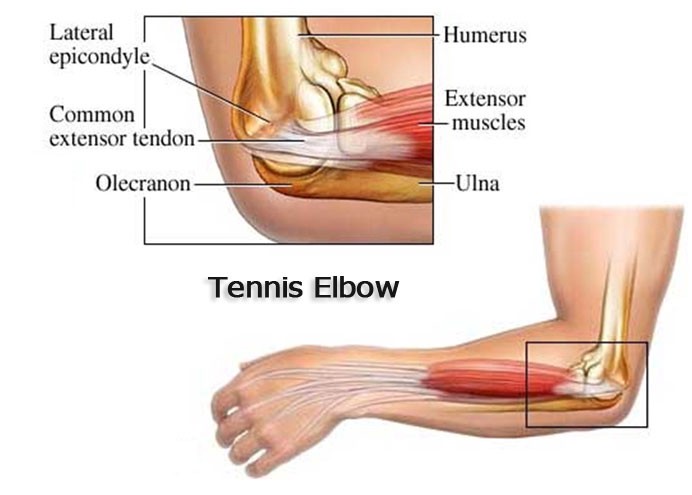Elbow Surgery in Lebanon
Search and Compare the Best Clinics and Doctors at the Lowest Prices for Elbow Surgery in Lebanon

Find the best clinics for Elbow Surgery in Lebanon
No clinics available
Russian Federation offers the best prices Worldwide
Price: $ 553

- Home
- Lebanon
WHY US?
At Medijump, we're making medical easy. You can search, compare, discuss, and book your medical all in one place. We open the door to the best medical providers worldwide, saving you time and energy along the way, and it's all for FREE, no hidden fees, and no price markups guaranteed. So what are you waiting for?

Free

Best Price

Widest Selection

Risk-Free
What you need to know about Elbow Surgery in Lebanon

Elbow surgery is a surgical procedure to treat an injured elbow, such as damage in the tendons that connect your muscles to the elbow bone. The procedure is required when other treatment options cannot improve the symptoms and affect your ability to perform a simple task, such as lifting a cup.
What Does the Procedure Involve?
There are two types of elbow surgery: open surgery and arthroscopic surgery, both can be performed under general or local anesthetic. In open surgery, your surgeon makes a single incision above the bone on your elbow side and removes the damaged part of the tendon. In arthroscopic surgery, your surgeon creates small incisions in the skin over the elbow to insert tiny instruments and a camera, then, the damaged parts of your tendon are removed using these tiny instruments. Depending on your condition, elbow surgery may also involve replacing your elbow joint.
How Long Should I Stay in Lebanon for a Elbow Surgery Procedure?
Elbow surgery is usually performed as an outpatient procedure, which means you can leave the hospital on the same day. Nevertheless, you will need to stay in Lebanon for 5 to 7 days for initial recovery, follow-up hospital checkups, and removal of stitches.
What's the Recovery Time for Elbow Surgery Procedures in Lebanon?
The total recovery time before you are allowed to exercise or play sports can be as long as four to six months. However, you should be able to return to work and some light activities within six to twelve weeks.
What sort of Aftercare is Required for Elbow Surgery Procedures in Lebanon?
There are usually no dietary restrictions, but you should eat a healthy and balanced diet. You will need to do strengthening exercises, but make sure to do it with a physical therapist that will show you the right exercises to strengthen your elbow. After you are fully recovered, always be careful not to injure your elbow again and your doctor may recommend exercises to strengthen your shoulder so you can take the pressure off the elbow.
What's the Success Rate of Elbow Surgery Procedures in Lebanon?
Approximately 80% to 90% of people who have elbow surgery said that their pain was reduced and their movement improved. Elbow surgery has possible side effects and risks, including infection, damage to nerves in the elbow, damage to blood vessels in the elbow, reduced strength, reduced flexibility, severe pain, swelling that does not go away, redness, numbness, fever, and tingling sensations in your hands or fingers.
Are there Alternatives to Elbow Surgery Procedures in Lebanon?
If you do not want to undergo surgery, you can usually treat it with pain relievers and rest. Your doctor may also recommend an elbow brace and a few adjustments to your daily activities. However, for severe cases, you may want to consider elbow surgery.
What Should You Expect Before and After the Procedure
Injury in your elbow can be very painful and limit your movements. After elbow surgery, you will be able to move your elbow easily and all pain will be reduced. As a result, you can continue to enjoy sports and other activities.
Whilst the information presented here has been accurately sourced and verified by a medical professional for its accuracy, it is still advised to consult with your doctor before pursuing a medical treatment at one of the listed medical providers
No Time?
Tell us what you're looking for and we'll reachout to the top clinics all at once
Enquire Now

Popular Procedures in Lebanon
Prices Start From $964

Prices Start From $218

Prices Start From $218

Prices Start From $2,050

Recommended Medical Centers in Lebanon for procedures similar to Elbow Surgery

- Interpreter services
- Translation service
- Religious facilities
- Medical records transfer
- Medical travel insurance
- Health insurance coordination
- TV in the room
- Safe in the room
- Phone in the room
- Private rooms for patients available

- Interpreter services
- Translation service
- Religious facilities
- Medical records transfer
- Medical travel insurance
- Health insurance coordination
- TV in the room
- Safe in the room
- Phone in the room
- Private rooms for patients available

- Interpreter services
- Translation service
- Religious facilities
- Medical records transfer
- Medical travel insurance
- Health insurance coordination
- TV in the room
- Safe in the room
- Phone in the room
- Private rooms for patients available

- Interpreter services
- Translation service
- Religious facilities
- Medical records transfer
- Medical travel insurance
- Health insurance coordination
- TV in the room
- Safe in the room
- Phone in the room
- Private rooms for patients available
Elbow Surgery in and around Lebanon
Lebanon, a country on the eastern shore of the Mediterranean Sea, is one of the smallest sovereign states. The country boasts a fascinating mixture of the Middle East and the West, Christianity, and Islam, and tradition and modernity. It has everything from golden beaches and World Heritage Sites to energetic nightlife and delicious cuisine. Among other countries in the Middle East, Lebanon appears to be one of the most popular medical tourism destinations. Over 10% of the tourists visiting the country, particularly from neighboring countries, come to receive medical care. Many hospitals and clinics in the country are accredited to the ISO:9000 standard and offer world-class specialist services in spine treatment, orthopedics, organ transplant, and other complex surgeries, as well as advanced cancer treatments. Cosmetic and reconstructive surgery are also popular.
Popular Parts of Lebanon
Beirut, the capital and largest city of Lebanon, is filled with historic landmarks and natural wonders. The most famous attractions in the city are the National Museum of Beirut, the Corniche and Pigeon Rocks, Sursock Museum, and Mohammed Al Amin Mosque. Many people also come to Lebanon to visit the port town of Sidon. Once a rich and thriving Phoenician city, it is dotted with historical monuments and ancient remnants, particularly in its Old City. Other popular cities include Tripoly, Baalbek, Byblos, and Tyre.
Weather and Climate in Lebanon
Lebanon has four seasons: winter (December to March), spring (April to May), summer (June to September), and autumn (October to November). Winter is the rainy season with high precipitation levels and cool temperatures. It is snowy in the mountains, but in some places, such as Beirut, it just rains during this season. Summer is hot, sunny, and dry, and can get very humid in cities located close to the sea. In the summer, the average temperatures are around 28°C to 30°C. Spring and autumn are both warm and pleasant.
Getting around in Lebanon
The main international airport where visitors fly into and out of Lebanon is Beirut–Rafic Hariri International Airport, which is the only operational commercial airport in the country. It serves international flights to numerous major cities across Europe and the Middle East, including Moscow, Paris, London, and Dubai. Given the small size of the country, there are no internal flights. Intercity buses and minibus are available and have an extensive network, especially in coastal areas. The best way to get around the country is by hiring a car (with a driver) or by using intercity taxis.
Tourist Visas in Lebanon
All visitors need to obtain a visa to enter and stay in Lebanon unless they come from one of the seven visa-exempt countries (including Kuwait, Bahrain, Qatar, Saudi Arabia, Oman, the United Arab Emirates, and Jordan). Citizens of 81 countries, including all EU countries, Australia, China, Canada, and the United States, are eligible for a visa on arrival for a maximum stay of 30 days. A conditional visa on arrival is available for citizens of 15 countries, including Algeria, Libya, Iraq, and Yemen.
Additional Information
- Local Currency: Lebanese Pound (LBP) is the official currency in Lebanon. 1 USD is equivalent to around 1,507 LBP. US dollars and the euro is widely accepted as well.
- Money & Payments: ATMs are widely available in many places around Beirut and other large cities. Many ATMs dispense both US dollars and Lebanese pounds. Credit cards, particularly Visa and MasterCard, are accepted at most major establishments. Tipping can be expected, usually around 10% to 15% of the bill.
- Local Language: Arabic is the official language in Lebanon. English and French are widely spoken as well, and many Lebanese can speak at least two to three languages.
- Local Culture and Religion: Islam (around 60% of the population) and Christianity (around 34%) are the primary religions in Lebanon. About 5% of Lebanese practice the Druze faith, while other religions are practiced by the remaining 1% of the population.
- Public holidays: New Year’s Day, Christmas Day, Eid al-Fitr, Eid al-Adha, All Saints’ Day, Resistance and Liberation Day, as well as Independence Day are some of the more important holidays in Lebanon.
Popular Searches
- Plastic Surgery in Thailand
- Dental Implants in Thailand
- Hair Transplant in Thailand
- Breast Augmentation Thailand
- Gastric Sleeve in Thailand
- Gender Reassignment Surgery in Thailand
- Laser Hair Removal in Bangkok
- Botox in Bangkok
- Dermatology in Bangkok
- Breast Augmentation in Bangkok
- Coolsculpting in Bangkok
- Veneers in Turkey
- Hair Transplant in Turkey
- Rhinoplasty in Turkey
- Stem Cell Therapy in Mexico
- Rhinoplasty in Mexico
- Liposuction in Mexico
- Coolsculpting in Tijuana
- Rhinoplasty in Korea
- Scar Removal in Korea
- Gastric Sleeve in Turkey
- Bone Marrow Transplant in India
- Invisalign in Malaysia
- Plastic Surgery in the Dominican Republic
- Tummy Tuck in the Dominican Republic
- Plastic and Cosmetic Surgery in Poland
- Rhinoplasty in Poland
- Hair Implant in Poland
- Dental Implants in Poland
- IVF in Turkey